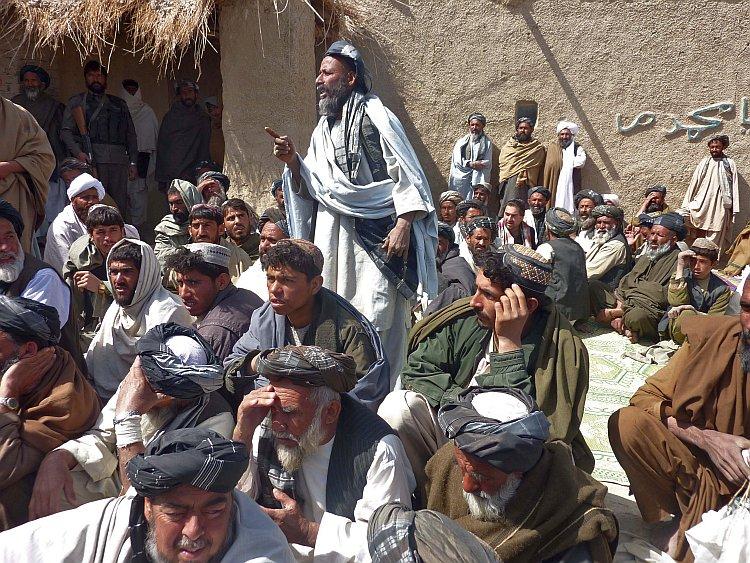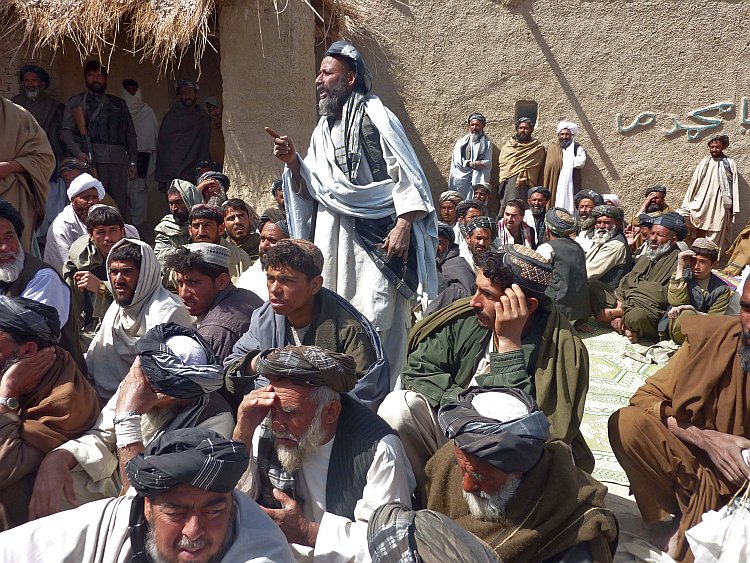It is unknown what was going through Staff Sgt. Robert Bales’s head when he allegedly walked out of his U.S military base in Afghanistan and descended on two local villages, killing 16 Afghan villagers, nine of them children.
A former financial adviser from Ohio, Bales is an eleven-year veteran of the U.S. Army, receiving numerous awards and distinctions for his service including three good conduct medals.
A father of two young children, Bales, 38, had reportedly been drinking on the night of the massacre in Kandahar March 11, despite the fact U.S. army bases are dry zones.
Military officials say he acted alone in the slaughter, turning himself in to authorities upon his return to the base.
At a time when U.S. troops have been under attack in Afghanistan, not only from the Taliban, but also from soldiers of the very forces they are in the country to train, U.S. Secretary of Defense Leon Panetta was quick to condemn the incident.
“A full investigation is already underway. A suspect is in custody, and I gave President Karzai my assurances that we will bring those responsible to justice.” Panetta said in a statement. “We will spare no effort in getting the facts as quickly as possible, and we will hold any perpetrator who is responsible for this violence fully accountable under the law.”
Panetta told reporters later, on a trip to Afghanistan, that Bales could possibly be given the death sentence if found guilty, but said it was still not clear what sparked the incident.
“You know, was it related to combat stress? Was it related to other factors? I mean, those are the kinds of things I think we need to pay attention to.”
Bales is presently in Fort Leavenworth, Kan., where he is now being held in pretrial confinement, Army officials said.
While all the factors are sure to play out in the days to come, whatever was going through Bales’s head may just have been a perfect storm.
Outstanding Soldier
According to Army officials, Robert Bales joined the defense forces two months after 9/11 on Nov. 8, 2001, and remained with the 3rd Stryker Brigade Combat Team, based at Joint Base Lewis-McChord in Washington state.
His military training included warrior and advanced leaders courses, sniper training, and combative levels, officials said in a statement, skills which require specific psychological assessment.
He was deployed three times to Iraq, for 12 months in 2003, for 15 months in 2006, and between 2009 and 2010 for 10 months.
During that time he experienced some fearsome fighting, describing one battle in which 250 enemy fighters died as like “a match lit up.” The description, which was published on a U.S. Army website, has since been taken down.
In the description Bales says he was proud to be a part of his unit saying, “We discriminate between the bad guys and the noncombatants and then afterward we ended up helping the people that three or four hours before were trying to kill us.”
“I think that’s the real difference between being an American as opposed to being a bad guy, someone who puts his family in harm’s way like that.”
Bales was recognized for his bravery and his skill on difficult missions, his awards including an Army Superior Unit Award and six Army Commendation Medals, the Defense Department, said in a statement.
Things Start to Unravel
But things were starting to unravel for Sgt. Bales by the time he was deployed to Afghanistan in December last year.
He had been injured in his last deployment in Iraq, sustaining concussive head injuries when his Humvee overturned, and he had lost part of his foot in a separate attack.
He had also made some bad investment decisions, which were threatening ownership of his house. He had been hoping for a promotion with better pay and a position he could share with his family. Instead he had been deployed to Afghanistan, a move that had upset his wife, which she aired on a personal blog.
There had also been some brushes with the law on home visits. In 2002, he was charged with assault resulting in an anger management assessment, in 2005 he was arrested for drunken driving, and in 2008 he reportedly crashed his car but ran off into the woods to avoid blame.
While any one of these factors is unlikely to have triggered Bales’s horrific actions, March 11, the combination may have been a tipping point. He retains high support from military comrades, many looking at brain trauma injury or post-traumatic stress disorder (PTSD) as contributors.
“Bales is still, hands down, one of the best soldiers I ever worked with,” Capt. Chris Alexander, his platoon leader in Iraq, told The Telegraph.
“There has to be very severe [post-traumatic stress disorder] involved in this. I just don’t want him seen as some psychopath, because he is not.”
According to the National Institutes of Health Medline, around 11 percent of veterans of the war in Afghanistan and 20 percent of Iraqi war veterans have been identified with PTSD.
Suicide rates in the armed services are also high, 157 confirmed suicides among those on active duty last year, and 14 suicides since the beginning of this year according to a U.S. Defense Department statement released March 15.
Bales is yet to be formally charged but his defense team headed by lawyer John Henry Browne of Seattle, was due to meet Bales on Sunday, AP reported.
“It is too early to determine what factors may have played into this incident and the defense team looks forward to reviewing the evidence, examining all of Sgt. Bales’s medical and personnel records, and interviewing witnesses,” the lawyers said in a statement.






